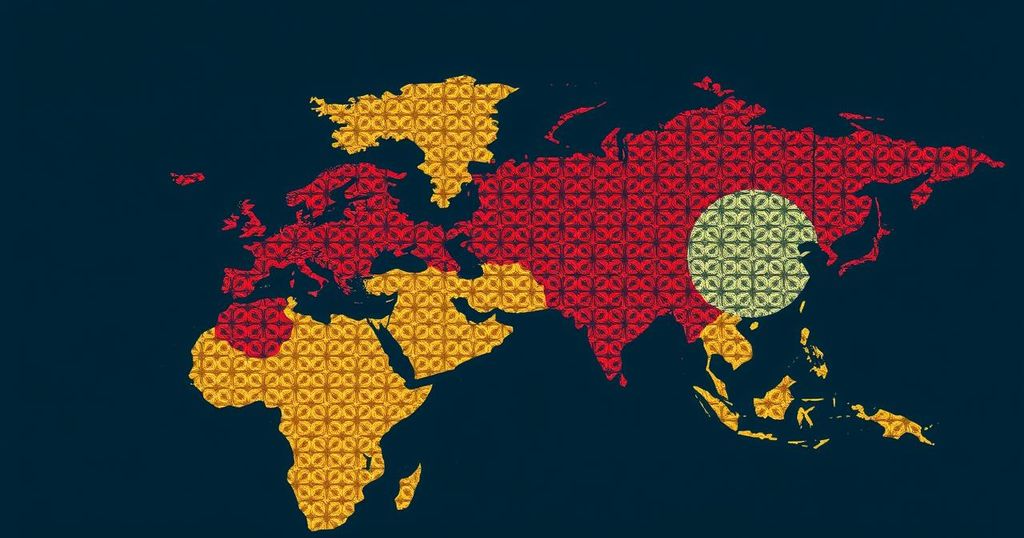Jim O’Neill, the former Goldman Sachs economist, expresses skepticism about the BRICS group’s potential to challenge the US dollar, citing ongoing divisions between China and India. He views BRICS summits as symbolic and lacking in tangible outcomes, and asserts that cooperation between these key countries is essential for the coalition to take on a meaningful role in global governance.
The concept of BRICS potentially threatening the dominance of the US dollar is deemed unrealistic as long as China and India remain in discord and fail to foster trade collaboration, according to Jim O’Neill, the former Goldman Sachs chief economist and the creator of the BRIC acronym. Speaking with Reuters, O’Neill expressed skepticism about BRICS evolving into a credible global economic entity, likening such aspirations to mere fantasy. He characterized the BRICS summits as largely symbolic gatherings that allow these nations, particularly those like Russia, to demonstrate a unified front against Western isolation attempts, especially in light of the ongoing conflict in Ukraine. O’Neill, who has been a notable analyst for over two decades, highlighted the lack of substantial cooperation among BRICS members, pointing out that resolving global issues requires active participation from both the United States and Europe, as well as from key rising powers such as China and India. The BRICS alliance originated from informal meetings of Russia, India, and China, which later formalized their cooperation and expanded to include Brazil and South Africa, along with other nations like Egypt and the UAE, effectively representing a significant portion of the global population and economy. During a recent summit, President Vladimir Putin indicated keen interest from over thirty additional nations wishing to join the group, while also cautioning about the complexities that expansion may bring. However, O’Neill maintains that any new BRICS initiative, particularly in creating an alternative payment system to challenge the US dollar, will heavily rely on China’s economic influence, with Russia and Brazil playing minor roles in such developments. He asserted that a genuine commitment to economic collaboration would require significant trade liberalization among member nations, particularly emphasizing the need for positive engagement between China and India, who have been at odds due to historical border disputes. Recent discussions between the two countries suggest a mutual desire to advance cooperation. Nonetheless, O’Neill remains critical of the BRICS group’s direction, calling for clear objectives to address pressing global challenges such as public health and climate change, noting failures of other international platforms like the G20 in fostering effective global governance. In summary, Mr. O’Neill articulates a cautionary stance toward the BRICS bloc and its aspirations, emphasizing the necessity for cooperation among its key members as a prerequisite for any substantive impact in the international economic landscape.
The BRICS group, originally formed by Brazil, Russia, India, and China, emerged to represent developing economies and advocate for reforms in global governance to accommodate their rising influence. Over time, the group expanded to include South Africa and several other nations. Despite accounting for a significant share of the world’s population and economic output, there are ongoing concerns about the internal cohesiveness of BRICS and its ability to challenge established global financial systems, particularly the dominance of the US dollar. Political dynamics, especially between major members like China and India, often hinder the group’s collective progress. The current geopolitical climate, characterized by Western sanctions on Russia and broader economic shifts, has intensified discussions surrounding notions of alternative economic frameworks and the necessity for collaboration.
In conclusion, Jim O’Neill’s observations underscore deep-rooted challenges faced by the BRICS coalition, notably the discord between China and India that erodes the group’s potential to emerge as a serious counterweight to Western economic dominance. The summits serve primarily as symbolic gatherings without direction or significant outcomes. For BRICS to evolve into a meaningful force in global governance, member states must resolve internal conflicts and establish concrete goals focused on global issues. Until then, the aspirations of BRICS to reshape the international economic landscape will remain unfulfilled.
Original Source: www.ndtv.com






